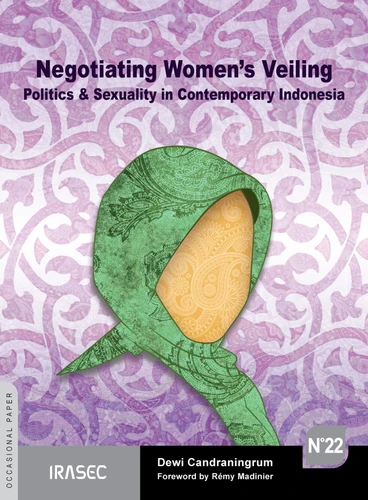Negotiating Women’s Veiling. Politics & Sexuality in Contemporary Indonesia
Par :Formats :
Disponible dans votre compte client Decitre ou Furet du Nord dès validation de votre commande. Le format Multi-format est :
- Pour les liseuses autres que Vivlio, vous devez utiliser le logiciel Adobe Digital Edition. Non compatible avec la lecture sur les liseuses Kindle, Remarkable et Sony
 , qui est-ce ?
, qui est-ce ?Notre partenaire de plateforme de lecture numérique où vous retrouverez l'ensemble de vos ebooks gratuitement
Pour en savoir plus sur nos ebooks, consultez notre aide en ligne ici
- Nombre de pages96
- FormatMulti-format
- ISBN978-2-35596-010-9
- EAN9782355960109
- Date de parution03/07/2018
- Protection num.NC
- Infos supplémentairesMulti-format incluant PDF avec W...
- ÉditeurInstitut de recherche sur l’As
Résumé
This study will focus on the Indonesian jilbab, an ubiquitous piece of cloth that covers the hair and neck of women tightly, leaving no skin unconcealed. Achievement and role of jilbab after the authoritarian regime of Soeharto in 1998 is hardly known. The author examines women perception but also the Sharia Ordinances and the narratives of censorship. Voices of both women and sexual minorities (transgenders, gays, lesbians, bisexuals and queers) finally demonstrate awareness of the politics of representation in contemporary Indonesia, highlighting the links between religion, politics and identity.
This study will focus on the Indonesian jilbab, an ubiquitous piece of cloth that covers the hair and neck of women tightly, leaving no skin unconcealed. Achievement and role of jilbab after the authoritarian regime of Soeharto in 1998 is hardly known. The author examines women perception but also the Sharia Ordinances and the narratives of censorship. Voices of both women and sexual minorities (transgenders, gays, lesbians, bisexuals and queers) finally demonstrate awareness of the politics of representation in contemporary Indonesia, highlighting the links between religion, politics and identity.



